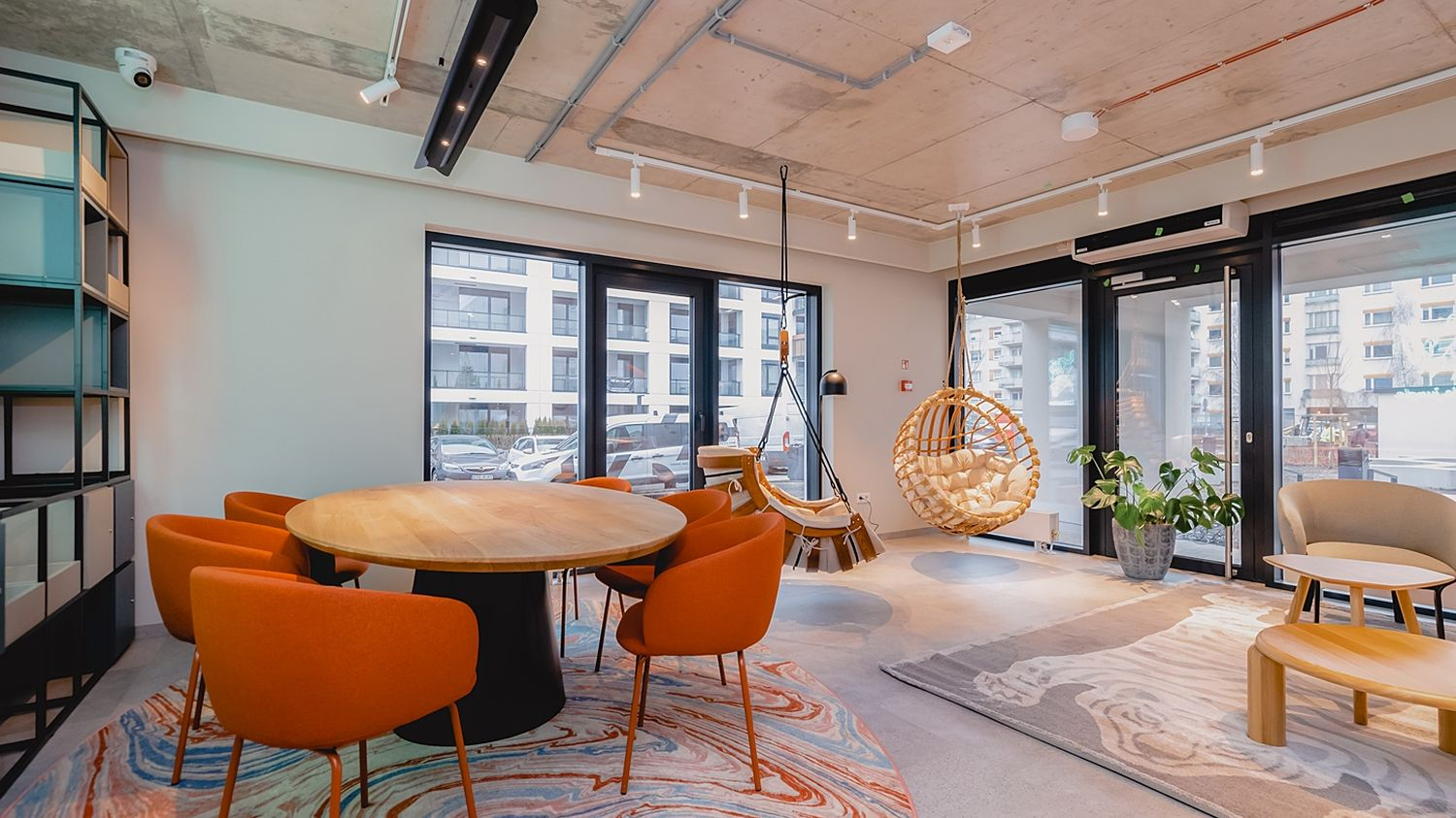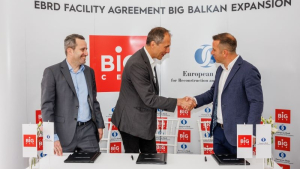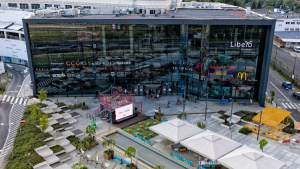
Experts from Cushman & Wakefield note in their latest report that the residential sector in Poland is developing ESG strategies focused on environmental aspects. However, PRS and co-living investors are also undertaking community-oriented initiatives.
"Residential developers are facing a series of challenges stemming from changes to EU legislation which are gradually being transposed into national law. Reporting in line with the guidelines of the CSRD and the EU taxonomy, adapting building designs to the requirements set out in the recently adopted recast EPBD concerning zero-emission targets for properties are just a few of the issues reshaping the Polish residential market in the context of the EU’s commitment to a sustainable economy. This is all the more important because until now residential projects have been slower to embrace changes resulting from ESG management. For instance, only recently has there been a notable increase in environmental certifications within this market segment, while such certifications have long been market standard in the office and logistics sectors. As a result, many companies in this market are now focusing on ESG audits, identifying risks associated with non-compliance with gradually emerging guidelines and prioritising tasks related to environmental sustainability and governance”, says Katarzyna Lipka, Head of Strategic Consulting and ESG Advisory, Cushman & Wakefield Poland.
The residential market – both the primary market and the PRS – is entering a phase of adapting to sustainability changes later than other real estate sectors for a simple reason: previously there was no pressure from investors, and tenants and buyers did not inquire about environmental certificates, while the costs of ensuring compliance with requirements and the certification process were high.
Sustainable construction is, however, emerging as a key market trend. Investors are adopting energy-efficient technologies and using eco-friendly materials to reduce the environmental impact of buildings. That said, in PRS and co-living projects, there is also a focus on building and strengthening communities while addressing the challenges faced by inhabitants of large cities today.
Diversity and inclusivity
Although the PRS accounts for a small proportion of the entire rental market, its share and significance are expected to grow in the coming years. This growth will be driven by many factors, including the gradual shift in attitudes among Polish people towards living in rented accommodations rather than owning homes. Brands with roots in Western Europe have noticed progress in this area.
"We come from Scandinavia, where the institutional rental market is strong and enjoys public trust. For our tenants in Sweden or Norway, long-term rentals are naturally a safe and stable option. We realise that for many people in Poland renting is still an unpleasant necessity. However, this view is gradually changing among the younger, much more flexible generation. But families with children, including young families, expect mainly stability and safety which cannot be guaranteed by individual investors. This is why our industry’s role in raising market standards and demonstrating the social benefits of the PRS growth is so important", explains Przemysław Orchowicz, Group Director Operations New Countries, Country Manager Poland at Heimstaden Poland.
The creators of the most successful PRS brands collectively emphasise the critical role their projects play in professionalising the rental market and reducing barriers in individual renting. They develop their projects to address the diverse needs of tenants across different age groups, professional statuses and financial capacities.
"Given the UN Sustainable Development Goals, the professionalisation of the rental market is also underpinned by the principles of diversity and inclusivity. As a landlord, we are guided by a transparent and objective criterion, i.e. a tenant’s ability to make timely payments. At the same time, we are moving away from the concept of gated communities - we do not favour any particular client group and we actively work against discrimination which is a major issue on the traditional rental market”, says Sławomir Imianowski, CEO of Resi4Rent.
Resi4Rent tenants come from 92 countries, including Ukraine, Belarus, the UK, France, India, Turkey, Armenia, Belgium, Algeria and Brazil.
An international community has also formed in Vantage Development’s buildings, with foreign tenants making up 44% of residents. The investor has tailored its loyalty programme to meet their needs as well.
"Tenants who join the Vantage Club can also benefit from free, face-to-face consultations with experts. In Q4 2023, we launched consultations with lawyers for foreign tenants. These consultations are especially helpful for newcomers to Poland facing challenges such as applying for a residence card, making a doctor’s appointment, arranging insurance or obtaining a work permit. In early 2024, we expanded our programme to include consultations with a job coach on matters such as job searching, CV writing, career planning or reskilling”, explains Dariusz Pawlukowicz, Management Board Member of Vantage Development.
Mariola Bitner, Head of Workplace Strategy, Associate at Cushman & Wakefield, notes that diversity is also about how people experience reality, what comforts them and what irritates them - whether they are neurodiverse or neuronormative.
"There are many initiatives undertaken across the world to adapt urban spaces to the needs of all of us. Interestingly, the residential market is seeing the first signs of changes in this regard. To meet diverse needs, spaces should be designed to exceed the requirements laid down in legal regulations. Acoustics, lighting, signage and spatial layouts are particularly important in housing projects. However, the sense of privacy is often an overlooked issue”, says Mariola Bitner, Head of Workplace Strategy, Associate, Leasing Agency – Office, Cushman & Wakefield.
Fostering social bonds
Equally important is the social aspect. PRS and co-living projects are developed not only to provide modern accommodation but also to create supportive communities. Experts note that lifestyle changes have led to an increase in single-person households, creating a strong need for purpose-built housing concepts to address the associated challenges.
"The risks of living alone have been well documented: a meta-analysis of nearly 150 studies shows that social isolation is linked to significant health consequences, including an approximately 30% higher risk of dying early. In fact, sharing living space is our solution to the growing problem of loneliness - a challenge that calls for new ways of dealing with it”, says Marta Karteczka, Head of Operations, Nrep Poland.
Nearly all the partners of the report are committed to fostering connections and promoting active living among residents. From picnics to brunches and workshops, there are many ideas that can address diverse needs.
"Events organised by LivUp have been highly successful, as shown by both high attendance and positive feedback from participants, including responses in tenant satisfaction surveys. Nearly 70% of residents also expressed interest in getting to know their neighbours during such events”, says Adam Wilgus, Real Estate Investment Associate, LivUp.
Even those who value peace and quiet are happy to see more happening in their surroundings.
"Surprisingly, non-participating guests value being part of the Noli community in their own way. One guest has shared with us that when they walk through a vibrant lobby filled with people, they feel more at home”, adds Marta Karteczka, Head of Operations, Nrep Poland.
An opportunity to promote the sharing economy
In Poland, laundrettes in buildings have until now been seen as elements of American films rather than part of everyday life. However, the growth of PRS and co-living projects presents an opportunity for a gradual shift in this view.
The Polish PRS is likely to follow in the footsteps of its Western counterparts by offering tenants added value in the form of diverse common spaces, notes Cushman & Wakefield in the report.
"Building laundrettes is just one option that landlords can offer tenants. Other solutions provided by investors in rental buildings may include co-working spaces, multifunctional rooms, shared gardens for growing plants, kitchens, gyms or playgrounds for children. As a result, residents gain access to a wide range of on-site amenities”, concludes Karolina Furmańska, Living Sector Expert, Cushman & Wakefield.
With a focus on sustainable solutions and social aspects, the PRS and the co-living sector in Poland are gaining momentum, addressing the needs of contemporary tenants and environmental challenges. Furthermore, as they continue to grow, there is also potential for emerging standards to encourage developers of flats for sale and individual tenants to adopt good practices from these sectors.



